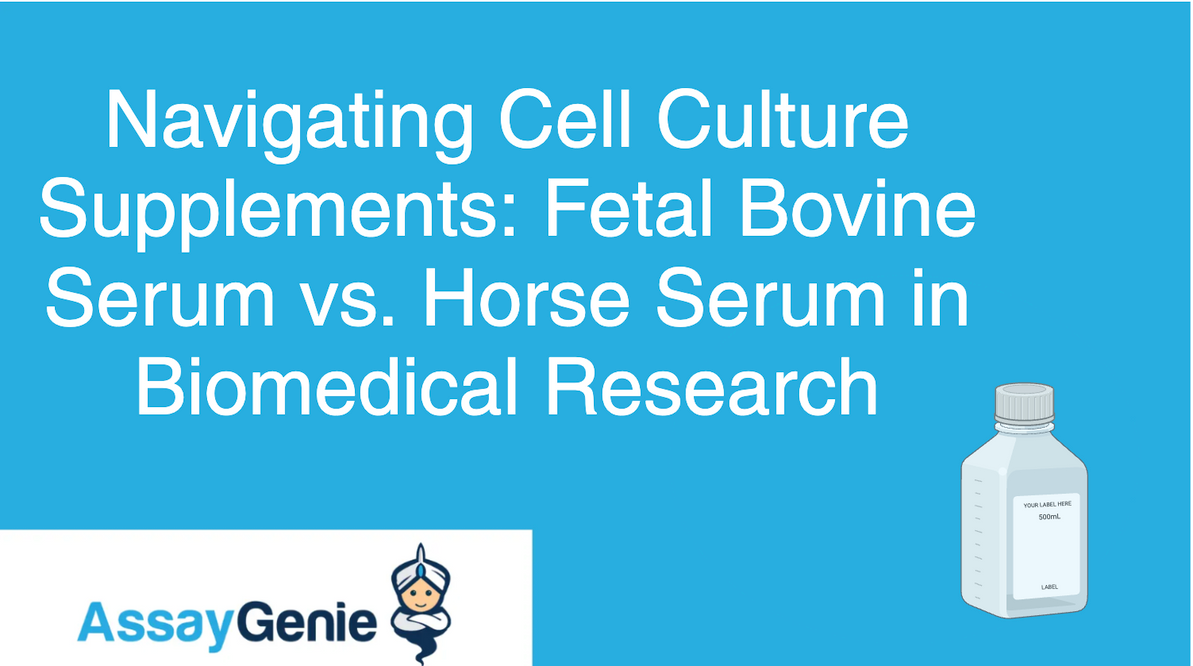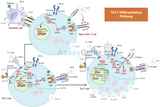Navigating Cell Culture Supplements: Fetal Bovine Serum vs. Horse Serum in Biomedical Research
The choice of appropriate cell culture supplements emerges as a crucial factor in ensuring the efficacy and consistency of experimental results. Among the various options available, two commonly used supplements are fetal bovine serum (FBS) and horse serum. Both serve as nutrient-rich mediums, facilitating cell growth and proliferation. However, the choice between these two alternatives often sparks debate due to their distinct compositions, applications, and ethical considerations.
Understanding Fetal Bovine Serum (FBS):
Fetal bovine serum, derived from the blood of bovine fetuses, is a widely utilized supplement in cell culture experiments. It provides essential nutrients, growth factors, hormones, and proteins necessary for cell growth and proliferation. FBS is prized for its consistency, reliability, and ability to support a wide range of cell types across diverse research areas, including cancer biology, immunology, and regenerative medicine.
Pros of FBS:
- Abundant Growth Factors: FBS contains a rich array of growth factors such as insulin-like growth factors (IGFs), transforming growth factors (TGFs), and fibroblast growth factors (FGFs), which promote cell proliferation and survival.
- Standardization: FBS is commercially available from various suppliers, allowing researchers to select batches that meet specific quality standards and performance criteria.
- Compatibility: FBS supports the growth of numerous cell types, making it a versatile choice for diverse research applications.
- Consistency: When sourced from reputable suppliers and handled properly, FBS offers consistent performance, reducing experimental variability.
Concerns Regarding FBS:
- Ethical Considerations: The collection of FBS involves the extraction of blood from bovine fetuses obtained from pregnant cows slaughtered for meat production. This process raises ethical concerns regarding animal welfare and the potential for animal cruelty.
- Cost: FBS can be relatively expensive, particularly for large-scale experiments, thereby posing financial constraints for researchers and institutions.
- Batch-to-Batch Variability: Despite efforts to standardize production processes, batch-to-batch variability in FBS composition can occur, impacting experimental reproducibility and reliability.
- Risk of Contamination: FBS may harbor adventitious agents such as viruses, mycoplasma, or endotoxins, posing a risk of contamination to cell cultures and compromising experimental outcomes.
Exploring Horse Serum as an Alternative:
Horse serum, derived from the blood of horses, presents an alternative to FBS in cell culture applications. Although less commonly used than FBS, horse serum offers distinct advantages and may be preferred in certain research contexts.
Pros of Horse Serum:
Challenges Associated with Horse Serum:
Navigating the Choice:
Future Directions:
Conclusion:
Recent Posts
-
Biological Role of GLP-1
Glucagon-like peptide-1 (GLP-1) is a critical hormone in the regulation of glucose met …20th Jun 2024 -
Th17 Cell Differentiation: Insights into Immunological Dynamics
Th17 cells, a subset of T helper cells characterized by their production of interleukin-17 (IL- …25th May 2024 -
Assay Genie New Asian Distributor May 2024
Dublin, Ireland — May 20th 2024 — Assay Genie, a leading supplier of ELISA Kits, Ant …19th May 2024




